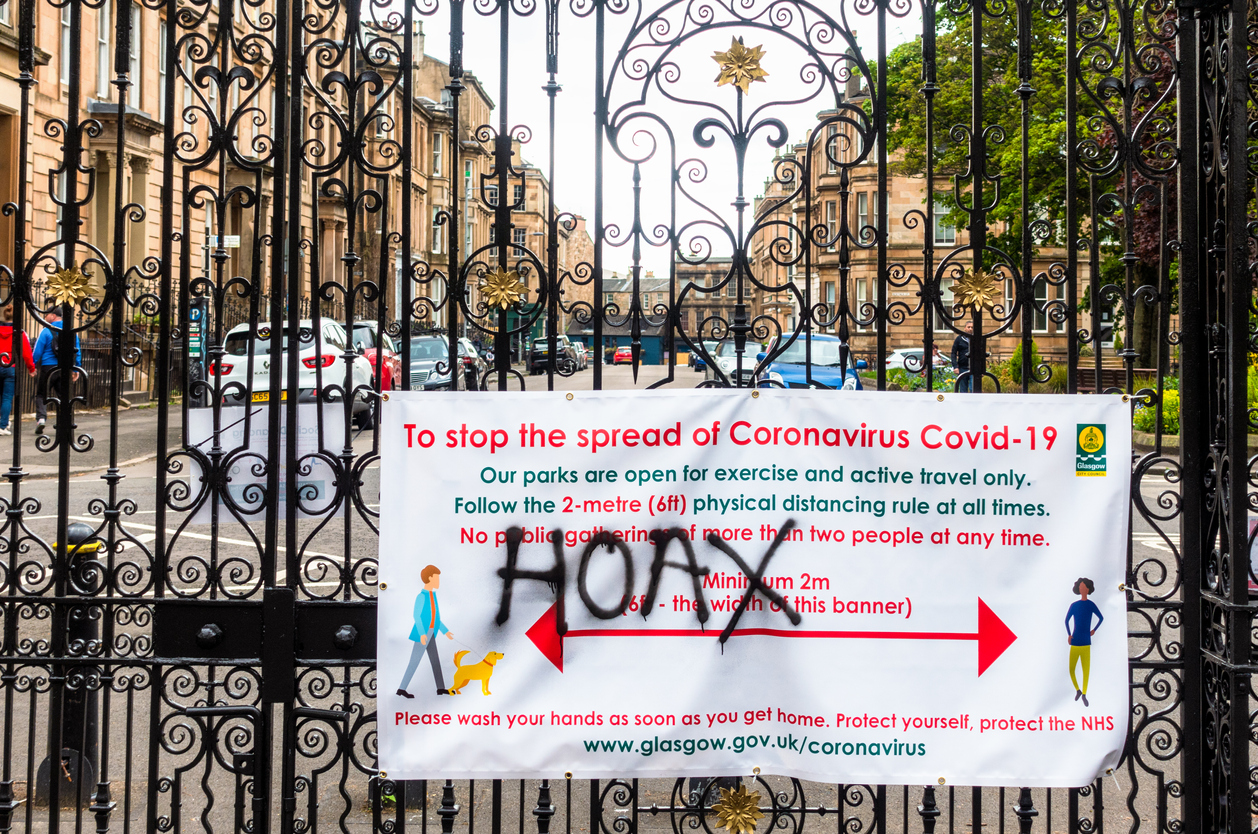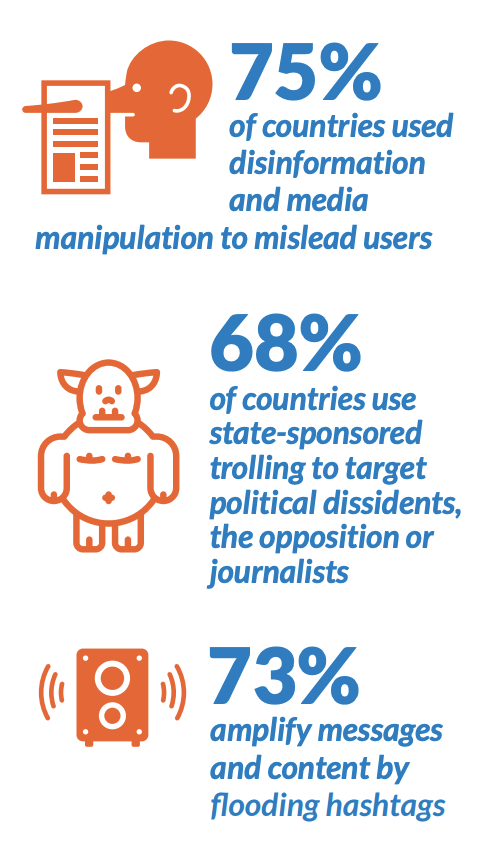
In the classic, ever-relevant 1976 movie, Network, deranged television news anchor Howard Beale exhorts his viewers to stand up, go to the window, open it and yell for all to hear: “I’m as mad as hell and I’m not gonna take this anymore.”
That’s how I feel these days — endlessly angry, frustrated and heartsick over so many aspects of our current global reality.
But at the top of my personal list is the horrifying ascendence of deliberate lying by political and government leaders, their spreading of false and misleading information, and the steady and wilful erosion of critical thinking among people who should know better than to ignore or subvert undisputed facts in favor of unproved, dangerous or hateful beliefs.
I’m a native citizen of the United States and a recent citizen of Luxembourg. and Europe. I promise that I’m putting my politics aside for this piece.
Flashing Lights, Screaming Sirens and Covid Misinformation
With that caveat in mind, to me there is no greater signal of just how dangerous these times are than the persistent and consistent disavowal of fact-based thinking by President Donald Trump and many of the officials and advisors around him as they confront the Covid-19 pandemic. (I’m leaving aside the many other issues to which this thought applies — for example, climate change, or the use and abuse of the pandemic for political advantage, like taking credit for a vaccine that doesn’t even exist yet, or promising miracle cures where there are no miracles.)
Bleach injection, anyone? Blood plasma treatment? Perhaps a hydroxychloroquine cocktail? Or the ‘exemplary’ way they say they have managed the pandemic as people continue to die?
For me, it’s the loudest indication — deafening-siren, blinding-flashing-light loud — of these dark times and the threats to our global future.
Life Was Simpler
I once co-authored a general health book with an American doctor who hosted nationwide television and radio shows aimed at debunking phony medical stories. “The biggest threat out there,” we wrote, “is wrong or distorted information.”
That was in 1999, during the quaint days of widely-read, responsible, mainstream newspapers and news magazines and massively-watched television talk shows. Also, it was long before Facebook, Twitter, QAnon, and all manner of Internet-propagated lies and conspiracy theories were believed and traded by tens of millions of allegedly sentient people.
Yet, we felt compelled to devote a chapter entitled “Trust the Media at Your Peril” to the kind of problem that today literally threatens lives and undercuts responsible governance.
Little did we imagine the world we’d be facing now, where the traffic in life-threatening untruth rides an Internet superhighway into the minds of millions of the too-easily-fooled.
Sounding the Alarm
Last week, two doctors, Seema Yasmin and Craig Spencer, wrote an opinion piece in The New York Times about their efforts to counter the Covid misinformation epidemic hampering efforts to beat the pandemic. “We’ve been working to dissect and debunk the many myths about this new virus, its potential treatments and the possibility of a vaccine. We read the mistruths on our patient’s phones, listen to theories borrowed from internet chat rooms and watch as friends and family scroll through Facebook saying, “Here — it says that this was definitely created in a Chinese laboratory.”
They cite a chilling report by the citizen activist group Avaaz that lays significant responsibility for the massive spread of Covid misinformation at Facebook’s door, calling its algorithm “a major threat to public health” and charging, among other things, that networks in five countries spread global health misinformation that attracted some 3.8 billion views in 2019, clocked 460 million views in April 2020 alone, and that top health-misinformation sites got four times as many views as organisations including the World Health Organization and US Centers for Disease Control.
Covid misinformation has been cited by a variety of medical experts as an ongoing threat. In February, the World Health Organization issued a “Coronavirus Situation Report” in which it warned that the pandemic “has been accompanied by a massive ‘infodemic’ – an over-abundance of information – some accurate and some not – that makes it hard for people to find trustworthy sources and reliable guidance when they need it” and that “the most prevalent rumours…can potentially harm the public’s health, such as false prevention measures or cures.”
Yasmin and Spencer, who are a clinician and an emergency room doctor, see the consequences of this Covid misinformation every day in their workplaces. “Patients question our evidence-based medical guidance, refuse safe treatments and vaccines, and cite Facebook posts as ‘proof’ that Covid-19 is not real.”
And while they’re right that “purveyors of false news will always exist” and that “for as long as there have been epidemics there have been snake oil salespeople exploiting fear and peddling false hope,” social media as a channel for its propagation and magnification takes it to a new level of destructiveness.

Looking for Hope
I find it hard to be optimistic that after four years of deliberate lies and misinformation — not to mention breathtaking managerial incompetence — Donald Trump has a very real chance of reelection.
All other issues aside, the fact is that his boldface denial of scientific fact and evidence isn’t in itself enough to guarantee that voters will turn him out. How depressing is that?
In the New York Review of Books, the terrific British journalist Jonathan Freedland lays out in Disinformed to Death the price we pay for deliberate ignorance.
“When a pandemic is raging, it becomes harder to deny that rigorous, truthful information is a mortal necessity. No one need explain the risks of false information when one can point to, say, the likely consequences of Americans’ coming to believe they can deflect the virus by injecting themselves with bleach.”
He hopes for a receptive audience that, as a result of the pandemic, “has seen all too starkly that information is a resource essential for public health and well-being—and that our information supply is being deliberately, constantly, and severely contaminated.”
I have to admit that it’s a challenge not to despair that the counter-efforts seem not to get a sufficient foothold.
Global Scope, America First
Much as I obsess over the tragic sinking of my native country into a sea of disinformation and deliberate lies, the issue — like climate change — is truly global. Freedland cites work by Oxford Internet Studies professor Philip N. Howard that documents 70 governments with “dedicated social media misinformation teams, committed to the task of spreading lies or concealing truth.”
This includes two million Chinese whose jobs are to grind out some 450 million messages each year, Vietnam’s 10,000 students dedicated to pushing the government line, and Russian bots generating nearly half the discussion on Twitter in that country.

Yet, in a recently-published book, Howard argues that the United States has seen disinformation spread more widely and deeply than anywhere else. With the “highest level of junk news circulation…during the presidential election of 2016…there was a one-to-one ratio of junk news to professional news shared by voters over Twitter.”
Howard calls them “lie machines,” while another author, Thomas Rid, calls them direct threats to a “political system that places its trust in essential custodians of factual authority,” in which he includes science, the academy, journalism, public administration, and the justice system.
When I co-founded VitalBriefing in 2011, our tag line was “the cure for information overload.” We had seen a need in the marketplace for reliable, trustworthy information authored by credible professional journalists — calling on a notion I had written in the 1999 book: “Legitimate journalists would never report something that they knew to be untrue.”
We have seen a growing market need both in the private and public sectors for information our clients and prospects can trust. I’m immensely proud of the small part we can play to counter the massive and deliberate attack on facts.
Like Freedland, my hope is that the global pandemic will lead to a re-set for audiences around the world as they confront the reality of a pandemic that doesn’t care what lies Trump, Vladimir Putin, Jair Bolsonaro and other irresponsible and immoral leaders tell about it.
Because bad information can kill you, or someone you love.

